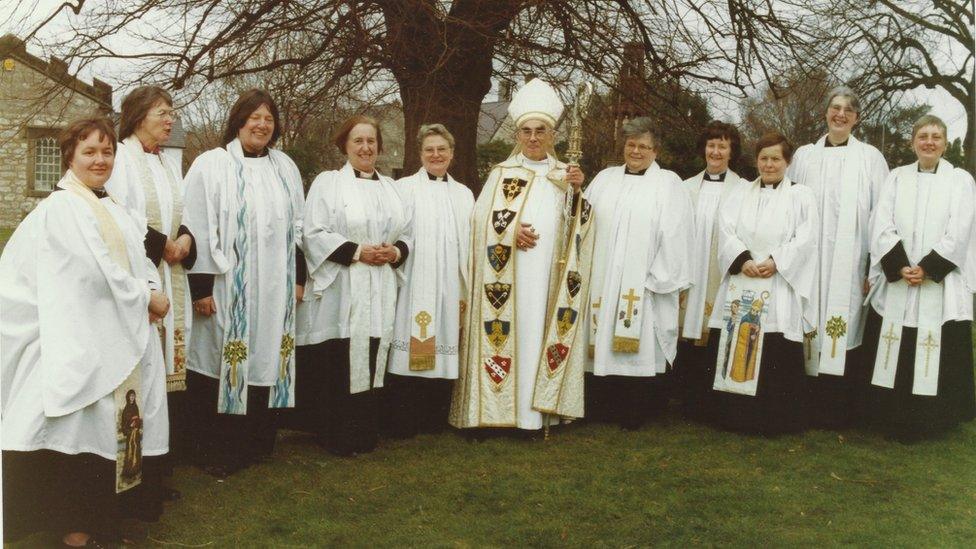Church of England at war after Bishop Philip North's U-turn
- Published
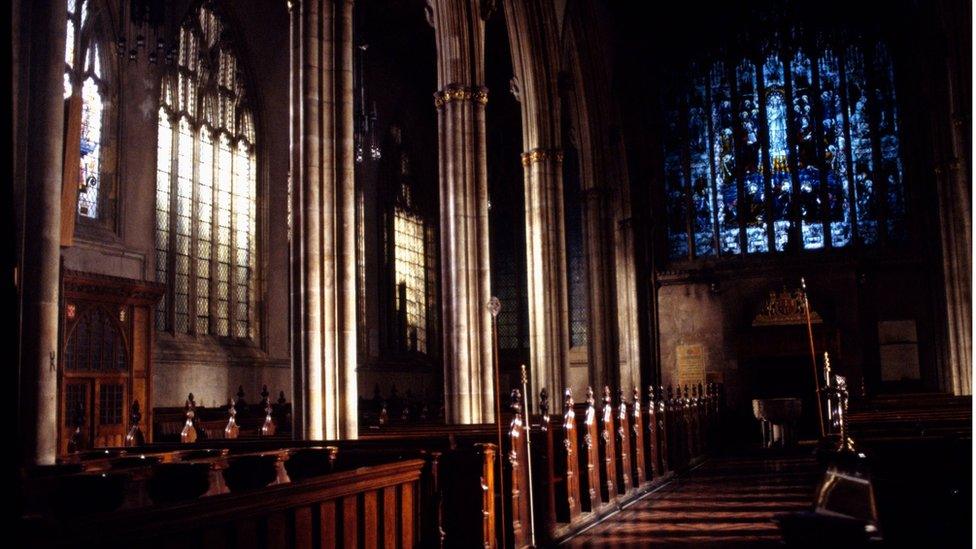
The Right Reverend Philip North exposed a wound in the Church of England when he announced the withdrawal of his nomination to become Bishop of Sheffield, referring to "the highly individualised nature of the attacks upon him".
More than 20 years after the first female ordinations, senior figures in the Church now face another struggle to reconcile those who believe women cannot be priests and those who think traditionalists are unacceptably sexist.
The Archbishop of York, the Most Reverend John Sentamu, has urged Anglicans to "disagree Christianly".
Another bishop blamed the row on an "intolerant" faction in the Church, and warned "we're all in trouble" if there was no future in the Church for traditionalist Catholics such as Mr North.
The dispute that led to Philip North turning down the Sheffield job began in an Oxford cafe one morning in early February, when the chaplain of Trinity College, the Reverend Emma Percy, was given a copy of a Christian magazine with a proud history but a small circulation.
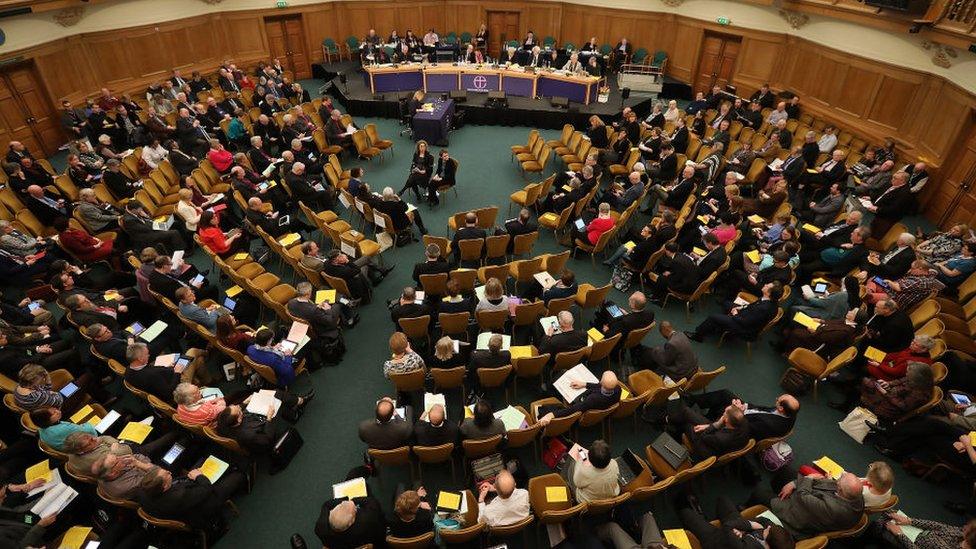
The general synod is the deliberative and legislative body of the Church of England
New Directions is written and read by traditionalist Anglo-Catholic members of the Church of England: the sort of Anglicans who are referred to colloquially as "high church".
An article explained how some Church of England priests were starting to be issued with identity cards, to show they were members of a traditionalist Anglican institution named The Society Under the Patronage of St Wilfrid and St Hilda.
Members of The Society, to use its shorter name, do not accept the ministry of women priests - or male priests ordained by female bishops.
Fogeyish
Soon afterwards, one of the most influential voices on the liberal wing of the Church of England, the Very Reverend Prof Martyn Percy - who happens to be Emma Percy's husband - quoted the article in an attack on Mr North's views, external.
The Society, of which Mr North is a leading member, was guilty of "rather fogeyish sacralised sexism", said Prof Percy.
He said: "Bishop North needs to be able to give his unequivocal support and affirmation to his male and female clergy alike. It can't be a partial and conditional affirmation, based on gender."
Prof Percy followed a Sheffield vicar, the Reverend Sue Hammersley, in urging Mr North not to accept his nomination.
She told BBC Look North: "I think the very fact that he won't ordain women himself has the potential to give out a really negative message - that somehow the Church of England is a discriminatory organisation."
The Labour MP for Sheffield Heeley, Louise Haigh, also wrote an open letter to Mr North, external in which she said attitudes to women in the Church were a "major priority for our next bishop".
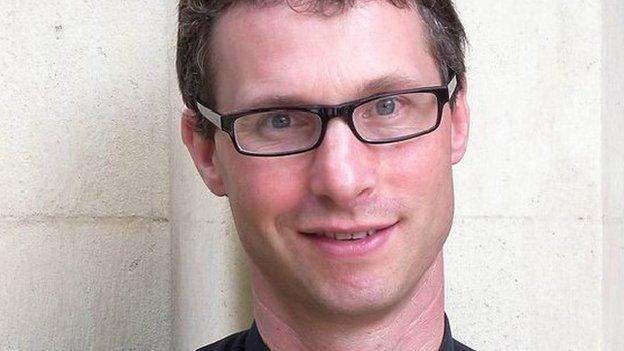
Bishop Philip North has rejected his nomination
She wrote: "Your traditionalist views pose many questions about how your leadership in Sheffield will work practically in relation to existing women clergy, men who have been ordained by women, women who are in the process of becoming clergy and congregations who come from a completely different tradition within the Church."
'Mutual flourishing'
Three days later, an evening statement published on the prime minister's website, external confirmed that Mr North, who is the Bishop of Burnley, would not be promoted to become Bishop of Sheffield.
All of this was supposed to have been avoided in 2014 when the Church's governing general synod reached the end of a long process of deciding that women could be bishops.
It agreed "five guiding principles", allowing traditionalists who opposed women priests to remain in "the highest possible degree of communion" and to "mutually flourish".
After Mr North's U-turn, which he said had followed "highly individualised attacks" on him, the Archbishop of York said there had been little sign of that commitment to mutual flourishing.
"What has happened to Bishop Philip clearly does not reflect the settlement under which, two and a half years ago, the Church of England joyfully and decisively opened up all orders of ministry to men and women," he said.
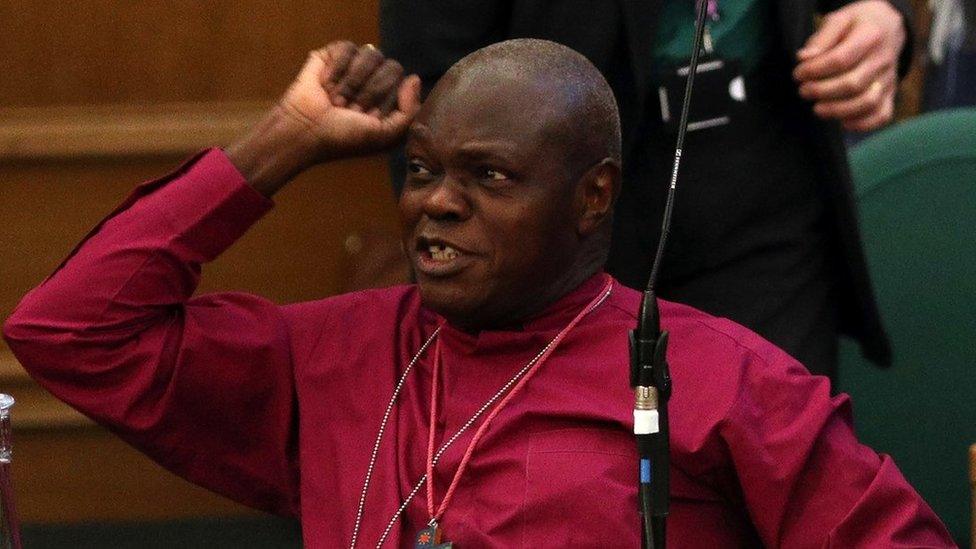
The Most Reverend John Sentamu: "Disagree Christianly"
Archbishop Sentamu was not alone in criticising the opponents of Philip North.
The Bishop of Willesden, Pete Broadbent, tweeted: "This is what the Church of England will be like if the intolerant exclusive 'inclusives' win… if there is no future for the Catholics, we're all in deep trouble."
'Period of mourning'
Serenhedd James, a historian and columnist for the Church Times, said: "For anyone, anywhere, to be subject of a public bullying campaign of such a personal nature is unacceptable. For it to happen within the Church, and be orchestrated by leading members of the clergy, is wicked.
"And for it to result in one of the most gentle, kind, talented, compassionate, committed, and honourable priests in the C of E being driven out of a post in which his God-given gifts are needed now more than ever is, frankly, diabolical."
At the other end of the Anglican spectrum, the conservative evangelical Bishop of Maidstone, Rod Thomas, said he was "deeply saddened" and described the move as "a body blow to the concept of 'mutual flourishing' which lay at the heart of the agreement to introduce women bishops in the Church of England."
Long, well-intended discussions about principles of conduct appear to have evaporated in the heat of a controversial nomination.
Despite a high-profile campaign in favour of Mr North by high-ranking male and female clergy, there is little talk of good disagreement or mutual flourishing.
While there seems to be embarrassment rather than triumphalism among opponents of Bishop Philip North's appointment, the campaign group Sheffield Action on Ministry Equality said many would now enter a period of mourning.
"We also sense an invitation from God for all of us in the Church of England to take responsibility for our part in a process that has caused such pain for so many people," said a statement on the group's website, external.
"We pray for Bishop Philip that he may fully recover from an ordeal we believe he should never have had to face."
The Archbishops of York and Canterbury now have to find a way to reunite a Church that is divided over women's ordination as well as sexuality.
- Published9 March 2017
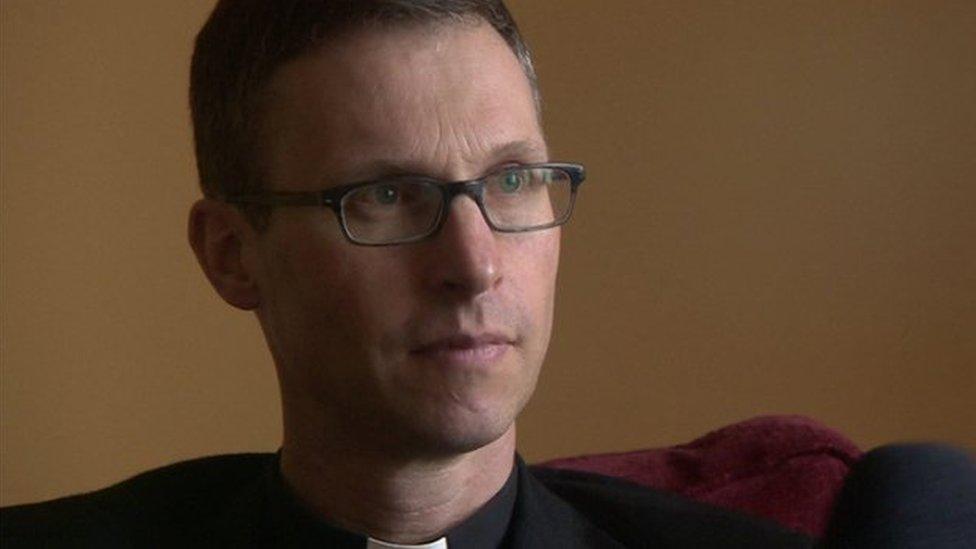
- Published14 February 2017
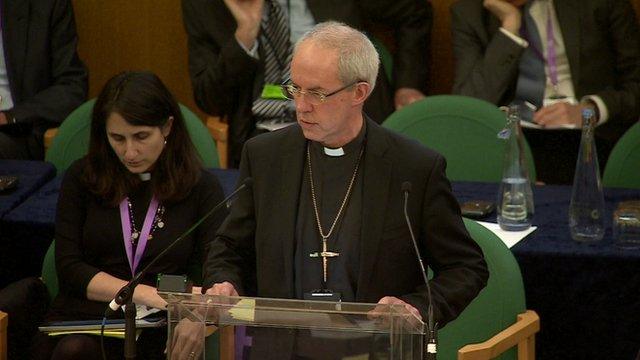
- Published25 January 2015

- Published28 December 2016
